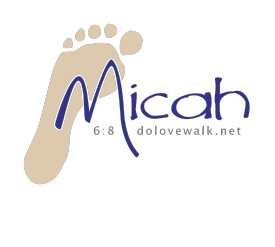Meghann Cotter grew up at Fredericksburg UMC. On the way home from a youth mission, Meghann asked her youth leader why the group had to go so far away to help people in need, when there were surely people in need of their help in Fredericksburg. Inspired by the question, the youth leader worked with Meghann and many other parent leaders to develop a housing restoration project that is today known as FREDcamp.
Meghan spent her early career as a reporter for the local newspaper but kept finding herself called to “make” change in the community rather than “write” about those changes being driven by others. In 2005, many of the downtown church clergy came together to pool services and resources so that the street homeless had a better chance of having their needs met and improving their lives. The ministry was named Micah in response to God’s call to do justice, to love kindness and to walk humbly with God (Micah 6:8).
The pastors recruited Meghann to help with some of the initial grant writing and later offered her the organization’s lead position. In addition to helping the homeless and those in poverty, Meghann also writes a newspaper column usually on the subject of poverty and homelessness.
The column that follows tells the story of a client who shortly after being helped, disappeared but several years later, came back to say thank you and in her own words to announce: “I made it.”
The last time I saw her, she did not have kind words for me. In fact, I believe the conversation had something to do with the many ways Micah had failed her.
She had just finished a stint in jail, returned to her old crowd and resumed the habits that led her into homelessness. For all we knew, she had hopped a caravan with a couple pals and headed across the country on a wild adventure. In most circumstances, her parting words were strong enough that her sudden disappearance did not leave us anticipating her return.
When someone drifts outside of Micah’s system of care, it usually means something very good or very bad has happened. Among the very bad is jail time, relapse and even death, while the good includes family reunification, a break through on income options or a new housing opportunity.
With bad news, time typically reveals the result. Its probation who calls for someone to pick up their belongings; or its the police in search of the next of kin. Sometimes its a headline in the daily paper or a landlord who calls to report the damages.
With good news, we are less likely to witness the result. It may be months or years before we hear the resolution of a positive disappearance. But when we least expect it, the most difficult client and the ones we weren’t quite sure we had any impact on, will roll back into our lives as if homelessness never happened.
A voicemail left on a Spring afternoon captured that familiar voice. “I just finished a project with my church,” the caller explained. “There were hundreds of us who spent time doing service in the community, and I started thinking about Micah. We painted the town red with service in a single day, and I was hoping you would meet with me to talk about ways I can paint the town red every day.”
The woman who met me for coffee a few weeks later was a far cry from the sassy figure I’d butted heads with years before. She told me how she had broken ties with her old crew, and we giggled at the wild contrast between her sober glow and the driver’s license picture that was taken soon after she entered treatment. She was living at home with her family again, she was involved in her children’s lives and slowly but surely the damage of her past was peeling away.
There was little that she needed from Micah by this point, but it meant something to her; and it certainly made our day, for her to come back and say, “I made it.”
Micah doesn’t always get to participate in the fruits of our labors. But there’s a case every now and then that reminds us that labors, of any kind, are in fact fruit themselves.
We have a saying at Micah that when we issue that first membership card, we are engaging in a relationship “til death do us part.” We mean that in so many ways, but most important of which is the acknowledgement that the clients we work with mean something to somebody.
Oftentimes, it isn’t so much about what we do or what we don’t do that leads someone to success. It’s that we were present in the first place. It is that presence in failure, struggle and even when there are not so nice words to throw at us, that invites us back to be present when the pieces of a broken soul find their way back together again.
Please send Meghann an email of encouragement for her work with Micah ministries. You can connect with her at MeghannCotter@me.com. For more information on Micah ministries you can click on http://www.dolovewalk.net.
